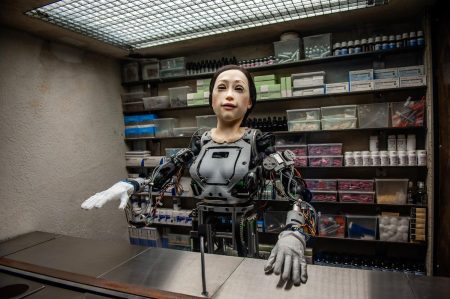Madhavi Shankar, CEO & Co-Founder. SpaceBasic, Inc. Empowering universities drive student success with a connected campus experience.
In the fast-paced world of emerging markets, the efficient management of college hostels plays a crucial role in providing a comfortable and conducive living environment for students pursuing higher education. The advent of technology has revolutionized the way hostels are managed, particularly through the integration of apps and software. In recent years, the inclusion of artificial intelligence (AI) in these tools has further amplified their impact, enabling automation and data-driven insights that reduce costs and enhance efficiency.
In this article, we will explore how AI-driven apps and software are transforming college hostel management in emerging markets.
1. Automated Room Allocation And Utilization
Gone are the days of manual room allocation processes that involved tedious paperwork and lengthy administrative tasks. AI-driven apps and software solutions now provide automated room allocation and utilization features. By leveraging AI algorithms, these tools can analyze student preferences, availability and specific requirements to allocate rooms efficiently. This not only saves time and reduces errors, but it also ensures optimized utilization of hostel space, ultimately reducing costs associated with underutilized rooms.
2. Energy Management And Sustainability
Energy consumption is a significant expense for college hostels. AI-powered apps and software can monitor and optimize energy usage, leading to substantial cost reductions. These tools use real-time data from sensors to identify patterns and trends in energy consumption, enabling proactive energy management strategies. For example, AI algorithms can automatically adjust heating and cooling systems based on occupancy levels and weather conditions, thereby optimizing energy usage and reducing utility costs. Additionally, AI can help identify potential areas for energy-saving improvements, such as implementing smart lighting or efficient appliances.
3. Predictive Maintenance
Maintenance issues can lead to unexpected costs and disruptions in hostel operations. AI-driven apps and software offer predictive maintenance capabilities, revolutionizing maintenance practices. By analyzing historical data and sensor inputs, AI algorithms can predict potential maintenance requirements and identify equipment or infrastructure that needs attention. This proactive approach can help prevent costly breakdowns, improve equipment life span and reduce overall maintenance expenses. Moreover, AI can optimize maintenance schedules, ensuring that resources are allocated efficiently and downtime is minimized.
4. Intelligent Inventory Management
Managing inventory is crucial for efficient hostel operations. AI-driven apps and software can optimize inventory management by analyzing usage patterns, forecasting demands and automating procurement processes. These tools can monitor stock levels, generate automated purchase orders and even suggest optimal inventory quantities based on historical data and future projections. By reducing manual efforts and human errors in inventory management, hostel managers can streamline operations, minimize wastage and control costs effectively.
5. AI-Driven Insights And Analytics
AI-powered apps and software provide valuable insights and analytics that enable data-driven decision-making. These tools can analyze vast amounts of data collected from various sources, including student feedback, occupancy rates, maintenance records and financial data. Hostel managers can gain actionable insights into trends, student preferences and operational bottlenecks, helping them make informed decisions to optimize efficiency and reduce costs. For example, AI can identify opportunities to streamline processes, highlight areas for improvement and suggest strategies to enhance the overall student experience.
6. Enhanced Security And Safety
AI-driven apps and software can significantly contribute to hostel security and safety measures. These tools can incorporate facial recognition technology, access control systems, and video analytics to monitor and identify potential security threats. AI algorithms can detect unusual activities, unauthorized access or suspicious behavior, triggering immediate alerts to security personnel. By enhancing security measures, hostels can create a safe and secure environment for students while reducing the risk of security incidents and associated costs.
Getting Started
When it comes to managing college hostels, AI can do wonders for both efficiency and the quality of life of students. Before implementing AI, universities should define their goals and identify specific pain points that could be addressed by the technology. At this early stage, they are able to tailor AI-enabled hostel management solutions to their specific requirements.
When vetting solutions, colleges should select hostel management software that incorporates AI technology into its core offering, has a history of successful deployments and can be tailored to the specific requirements of the institution.
In addition, hostel staff must be trained to work in tandem with AI solutions, and institutions should supply the resources they need to understand the technology’s potential and limitations.
Lastly, institutions should evaluate their IT and data security measures before diving into AI. The privacy concerns of students and the ethical implications of using AI should also be taken into account. In order to keep AI in line with evolving needs and challenges, its adoption in hostel management requires a proactive strategy that includes regular monitoring, adaptation and feedback loops.
In summary, the incorporation of AI-enabled hostel management solutions has resulted in an innovative shift in emerging market college hostel management. By automating multiple processes and providing insightful analytics, these tools can enable hostel administrators to reduce costs, optimize efficiency and improve the overall student living experience. By embracing the power of AI, colleges can cultivate a nurturing environment that combines cutting-edge technology with individualized care, thereby fostering student success.
Forbes Technology Council is an invitation-only community for world-class CIOs, CTOs and technology executives. Do I qualify?
Read the full article here










